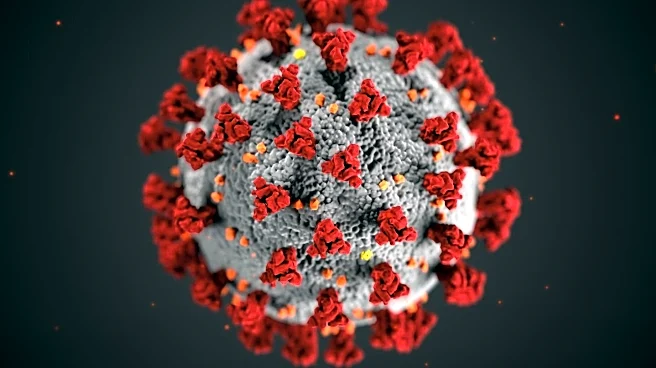What's Happening?
A study has provided new insights into the herpesvirus helicase-primase (HP) complex, revealing potential therapeutic targets for antiviral drug development. Researchers successfully expressed and purified the HSV-1 HP complex, enabling detailed structural
and mechanistic analyses. The study utilized cryo-electron microscopy to visualize the complex and identify binding sites for potential inhibitors. The findings suggest that targeting the HP complex could disrupt viral replication, offering a novel approach to treating herpesvirus infections. This research highlights the potential for developing new antiviral therapies that specifically target the HP complex.
Why It's Important?
Herpesviruses are responsible for a range of diseases, and current treatments are limited in their effectiveness and can lead to resistance. The discovery of new therapeutic targets within the herpesvirus HP complex is significant as it opens up possibilities for more effective treatments. By targeting the HP complex, new drugs could potentially inhibit viral replication more efficiently, reducing the impact of herpesvirus-related diseases. This could lead to improved patient outcomes and reduce the burden on healthcare systems.
What's Next?
The next steps involve further validation of the identified inhibitors in preclinical studies to assess their efficacy and safety. If successful, these inhibitors could progress to clinical trials, potentially leading to new antiviral drugs. Researchers may also explore the application of these findings to other herpesvirus strains, broadening the scope of antiviral drug development.
















